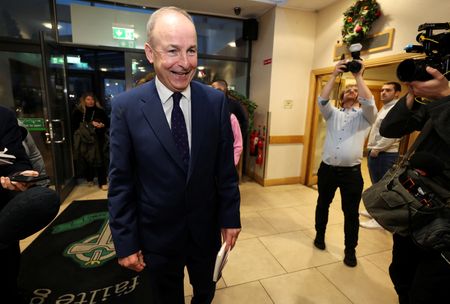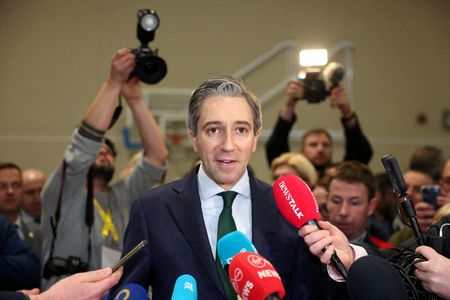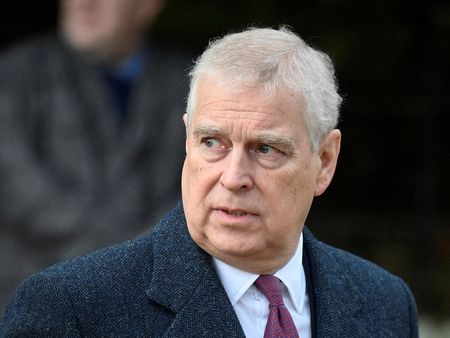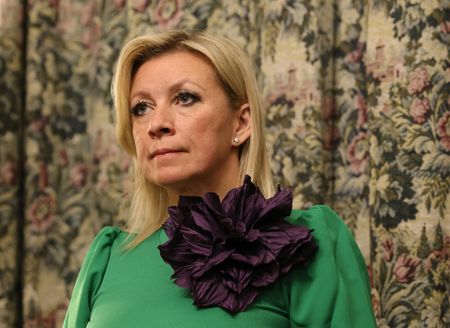By Padraic Halpin and Conor Humphries
DUBLIN (Reuters) – Ireland’s two major centre-right parties finalised a coalition deal with independent lawmakers on Wednesday that will return Micheal Martin as prime minister and continue the previous government’s high spending economic policy.
The Fine Gael and Fianna Fail-led government pledged to increase public sector investment, fix infrastructure deficits and cut taxes after securing a comfortable parliamentary majority in the talks that followed a Nov. 29 election.
The parties aimed to finalise the deal before next week’s inauguration of U.S. President-elect Donald Trump, conscious that his pledges to cut corporate tax and impose tariffs pose a potentially major threat to Ireland’s foreign multinational-focused economy.
Martin will return for a second stint as prime minister when parliament next sits on Jan. 22, having led the country from 2020 to 2022. He will rotate the role again with outgoing premier Simon Harris of Fine Gael in late 2027.
“At a time of geopolitical upheaval and challenges to democracy, the Irish people have given a significant mandate for a government which can provide stability,” the new government partners said in their policy programme.
Their plans include pledges to increase pension payments, cut childcare costs, boost subsidies for homebuyers and cut the VAT rate for food and catering service firms.
The programme did not include a commitment to introduce a new fiscal rule to moderate spending increases. It pledged to run budget surpluses and fund “appropriate” levels of current and capital expenditure growth, while also building up Ireland’s sovereign wealth funds.
The last government introduced a rule in 2021 to cap total spending increases at 5% a year but broke it in three of the four annual budgets.
The outgoing coalition went to the polls on the heels of a giveaway budget of tax cuts and spending increases, largesse made possible by a surge in multinational corporate tax revenues that has given Ireland the healthiest public finances in Europe.
While the finance ministry expects those receipts to keep growing and deliver five more years of healthy budget surpluses, officials have consistently warned that they could decline at any time and may become more volatile if Trump follows through with his tariff plans.
The government would respond to an unexpected deterioration in the public finances by postponing planned income tax cuts while maintaining capital spending and protecting existing levels of public services, the document said.
Fine Gael’s Paschal Donohoe, chair of the group of euro zone finance ministers, is tipped to return as finance minister when the ministerial team is named next week.
(Reporting by by Conor Humphries and Padraic Halpin; Editing by Peter Graff, Barbara Lewis, Christina Fincher and William James)











